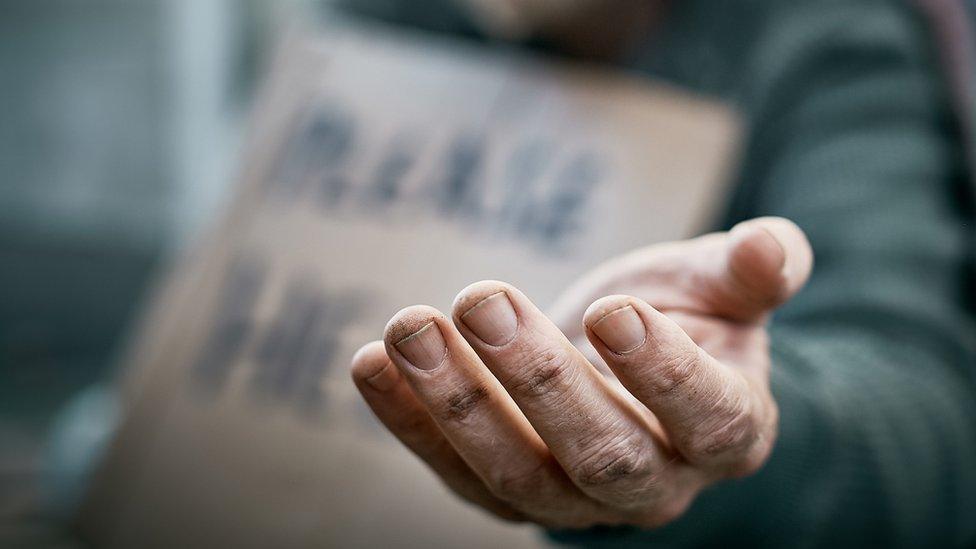Glasgow sets up new scheme to help beggars
- Published

The scheme offers an alternative to giving directly to beggars
An "alternative giving" scheme is being set up in Glasgow to help people begging on the city's streets.
Donors will be able to give money online or at contactless giving points rather than handing out cash.
The donations will go to a fund that provides practical help such as clothes to attend a job interview, travel tickets or training to help find work.
The Street Change Glasgow scheme will be run by the city council.
The authority has worked with third sector organisations like the Simon Community Scotland, Glasgow Homelessness Network and The Big Issue, along with Glasgow Chamber of Commerce and Police Scotland, in drawing up the scheme.
Groups working with homeless people will be able to apply to the fund on their behalf.
Long-term help
Allan Casey, chairman of the city's begging strategy group, said: "Glasgow is a generous city and people care deeply about those who are vulnerable and marginalised.
"They regularly give their spare change to people who are begging. This may help in the short-term, but may not bring about positive, long-term change in that person's life.
"The new alternative giving scheme will offer the public a new way to help, which aims to deliver long-term change for individuals - giving them personalised practical support to improve their lives by pursuing positive paths."
The scheme will operate in tandem with existing services in the city such as the Housing First scheme, homelessness services and the new roving digital inclusion officer, who tours the streets with a tablet computer, checking that people are claiming the benefits they are entitled to.
"We aim to remove barriers preventing people from rising out of poverty and no longer having to participate in begging," Mr Casey added.
Members of the begging strategy group have visited a number of UK cities to look at similar schemes.
Street Change Glasgow is based on an initiative that has been running for about three years in Manchester.